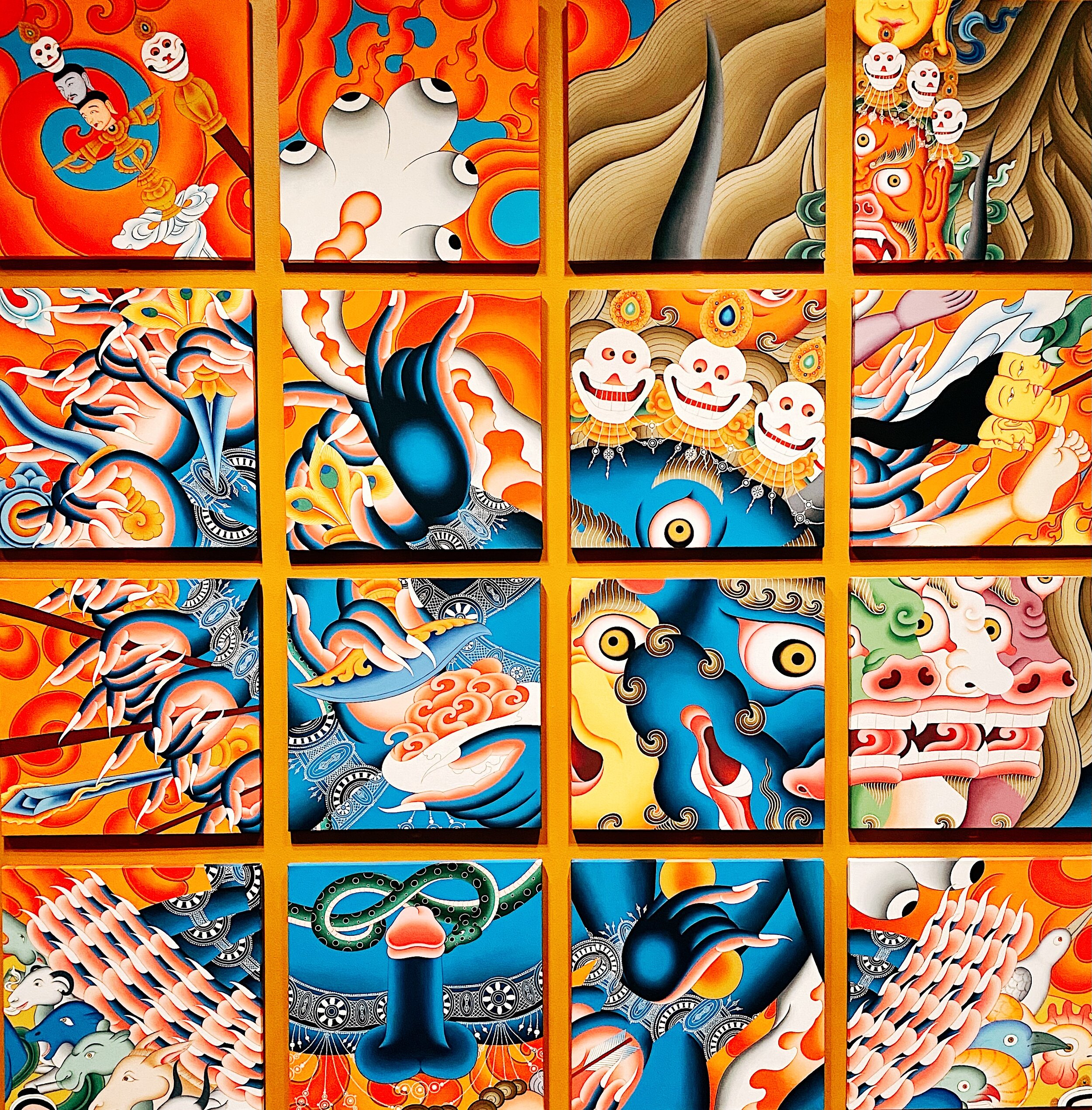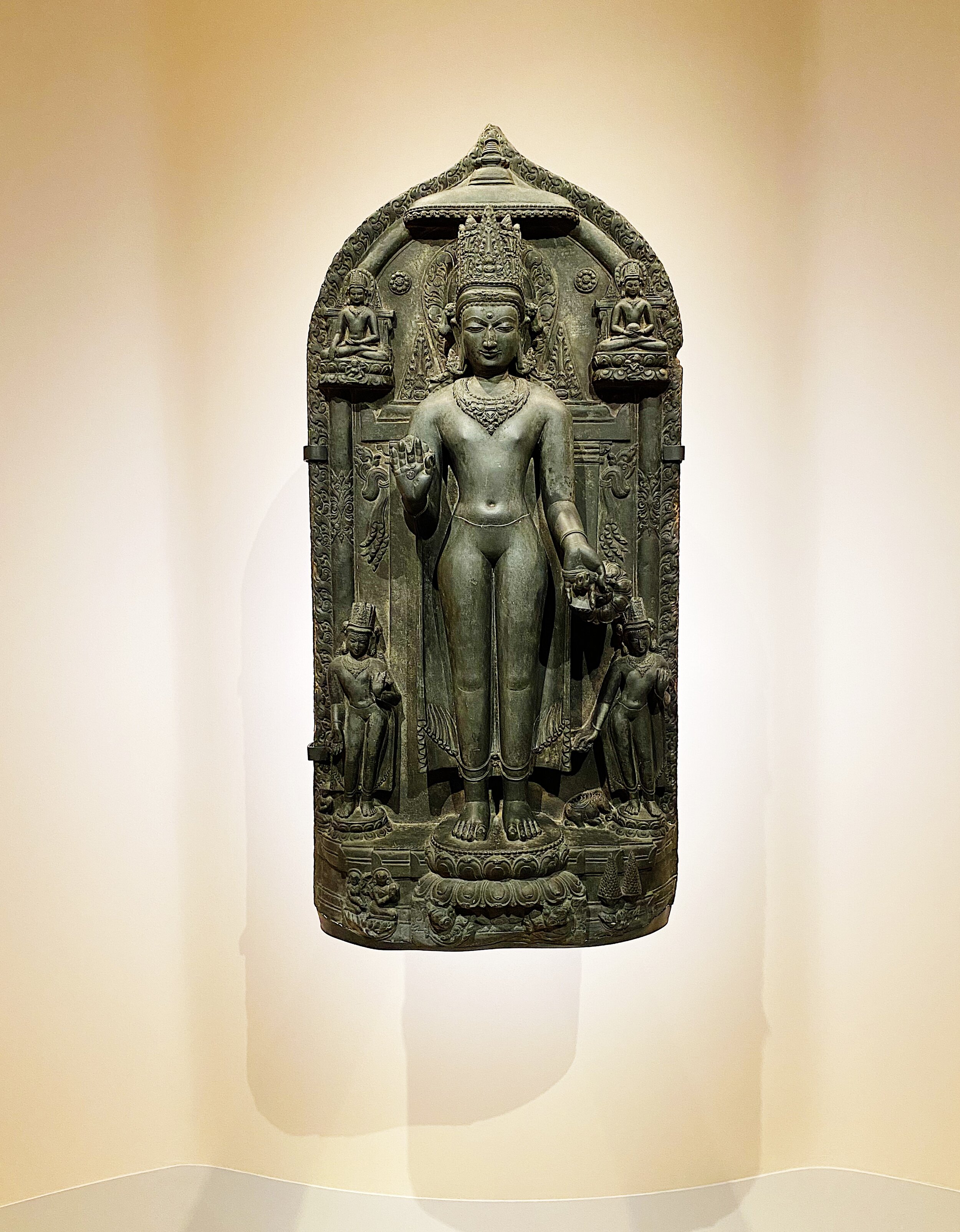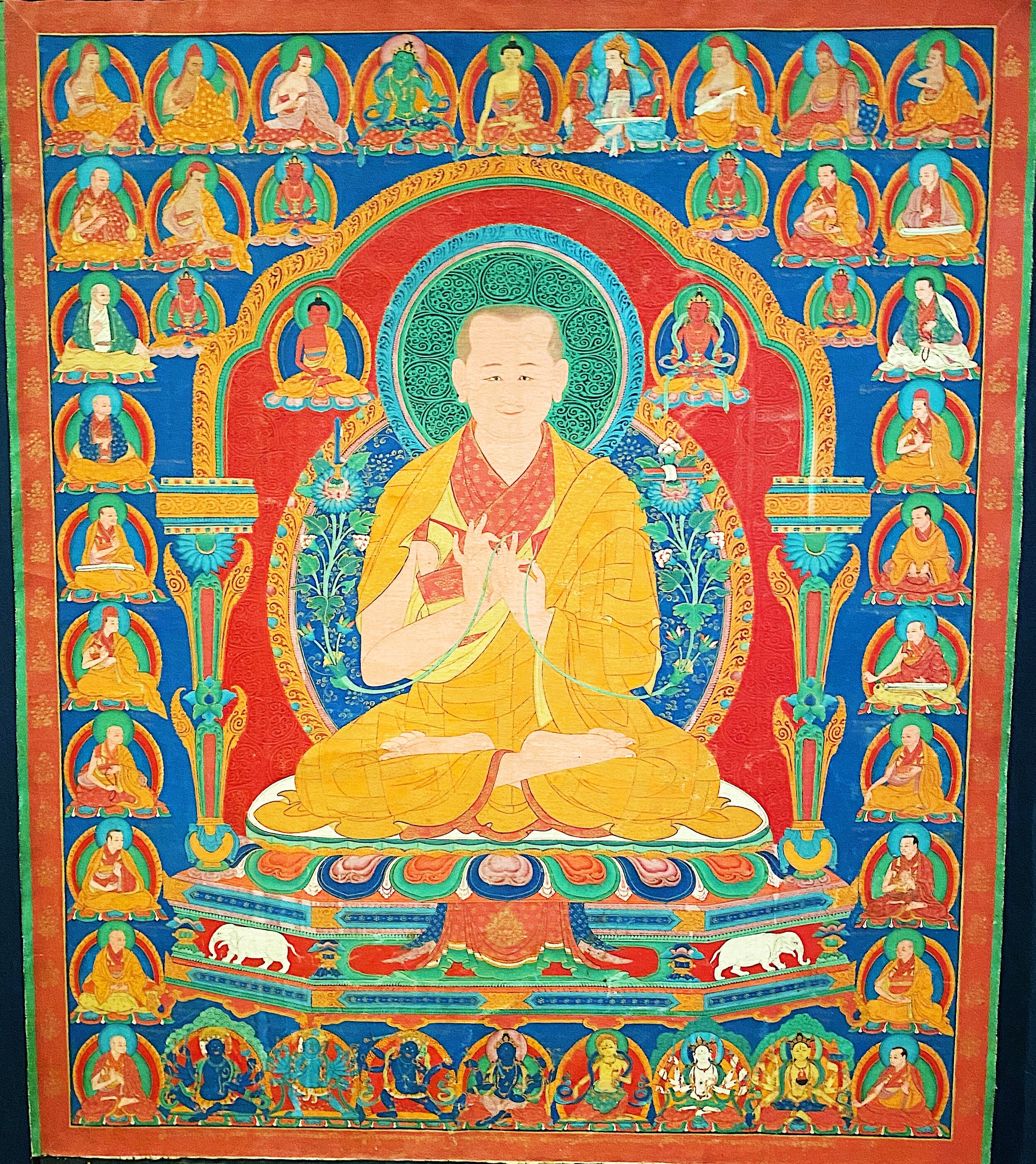Facing Chaos at the Rubin Museum

Tsherin Sherpa (American, b. 1968, Nepal)
This week in New York is Asia Week. In years past, this has meant a week-long spectacular involving auction houses, galleries, art dealers, antiquers and more.
But given everything going on throughout the US, and especially with the shootings in Atlanta on Tuesday, Asia Week has taken on a whole new significance. It is not just a week for art world darlings to hobnob, it is an observance of thousands of years of culture and creation.
When in college, I spent a summer studying at Beijing's Tsinghua University (清华大学). While there, we were assigned language partners who not only helped us work on our Chinese language skills, but also showed us around the city and highlighted important aspects of Chinese culture. What amazed me most during conversations with my language partner was his incredible knowledge of Chinese history. He knew detailed information about thousands of years of history -- the dynasties and wars, cultural trends and shifts of power -- while I could barely recall major moments in my country's less than 250 years.
It is humbling to learn about traditions and rituals that seems as old as time, and there is so much to celebrate in Asian culture, which is as varied and diverse as our New York City itself. In the midst of the violence and hate, there is an institution in the city that works to illuminate Asia’s culture and heritage. The Rubin Museum, "traverses Asia’s diverse cultures, regions, and narratives," but really it is a place of learning and exchange. Now more than ever, it is important to be open to other cultures, to work to understand where someone comes from and how that informs their outlook. We are never done learning.

The museum's latest exhibition, "Awaken: A Tibetan Buddhist Journey Towards Enlightenment," was a reminder of how little I know. There were explanations about imagery that I see all the time and practices I am familiar with but never knew their underlying meaning or their attribution. True to its name, the exhibition was an awakening.
The first text viewers see is entitled "Facing Chaos." "Everyday experience can feel like a never-ending struggle," the text begins. "To-do lists, notifications, conflicting demands, unrelenting updates, past regrets, future hopes, brief escapes, hard reentries...our experience is fragmented into increasingly disconnected bits, and our vision, particularly of ourselves, is often fractured into disjointed pieces."
Ok...if that isn't a harrowing but true characterization of modern life. But there is a solution: finding patterns in the chaos. Wake up, be aware.

From "Facing Chaos," the exhibition takes viewers on the path to awakening, interpreting ancient and modern artworks, manuscripts, ritual objects and other elements of Buddhism. As you recognize and begin to understand gestures and patterns within the works on display, you are reminded to do the same in your own life, to find a sense of order amidst the madness.
In the end, Buddhism argues, our fragmented reality, our daily chaos, should be replaced by focus. I think that's something we can all strive for.
